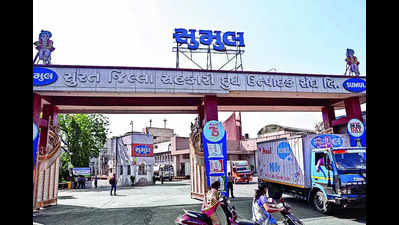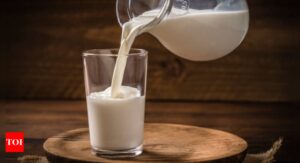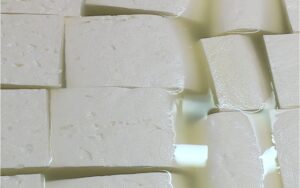

Surat: The Surat District Co-operative Milk Producers’ Union Ltd — known through its brand name Sumul — did brisk milk business in the holy month of Shravan, with an additional daily sale of around 50,000 litres. The extra sale grew by over 1 lakh litres on Mondays during the month.
A large number of people observe fasting during Shravan, and the consumption of milk products increases during this period.Further, milk is offered to Lord Shiva as well.
Sumul’s daily distribution of milk is around 12.4 lakh litres through 3,200 agents. The milk reaches around 15 lakh households daily in the city.
“During Shravan, the daily milk sale increased by 50,000 litres and by around 1 lakh litres on Mondays. The rise was due to the consumption of milk and milk products during fasting. People also offer milk during prayer,” said Jayesh Patel, director of Sumul.
Throughout the month, Sumul dairy makes arrangements to manage the demand and the supply. The demand quickly drops soon after Shravan ends.
“The milk demand increases as most households buy more milk to make various dishes as they observe fasting. Many consume only milk during fasting,” said a Sumul official.
“Milk demand also increases for the making of sweets which are sold during festivals like Janmashtmi and Rakshabandhan,’’ he said.
Further, during Janmashtmi, the demand for yogurt shoots up by seven tonne. On a normal day, the demand is 30 tonne, which grows to 37 on Janmashtami day. Considering the trend, the dairy management keeps the stocks ready to meet the demand.
The demand on Janmashtami shoots up because of consumption of various yogurt-based products during the festivities. Every year, the demand increases with the rise of city’s population.
We also published the following articles recently
Sumul Dairy reported a substantial rise in milk sales during the holy month of Shravan, with an additional daily sale of approximately 50,000 litres and over 1 lakh litres on Mondays. This increase is driven by higher consumption of milk products during fasting periods and religious offerings. Demand drops significantly after Shravan ends.
The article examines the increasing preference for plant-based milk alternatives like soy, oat, and almond milk due to health concerns and changing tastes. It details their nutritional content, health benefits, flavor profiles, textures, and preparation methods. The conclusion suggests that choosing among these options depends on individual nutritional needs and culinary applications.
From September 1, milk prices in Guwahati will go up by Rs 3 per litre as the Greater Guwahati Milk Traders’ Association adjusts to increased raw milk costs. This price hike is likely to affect the cost of milk-based products, adding more financial pressure on consumers who are already facing high essential commodity prices.





